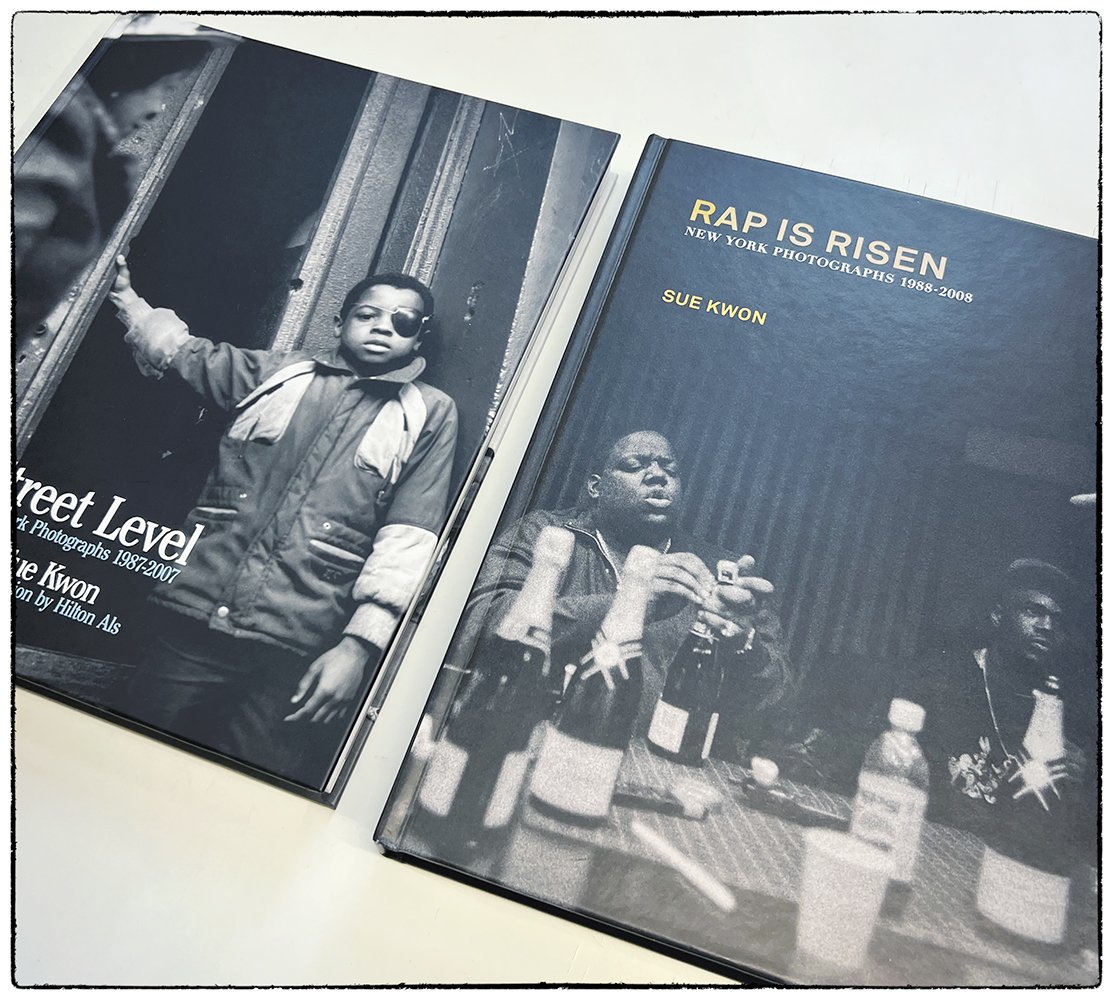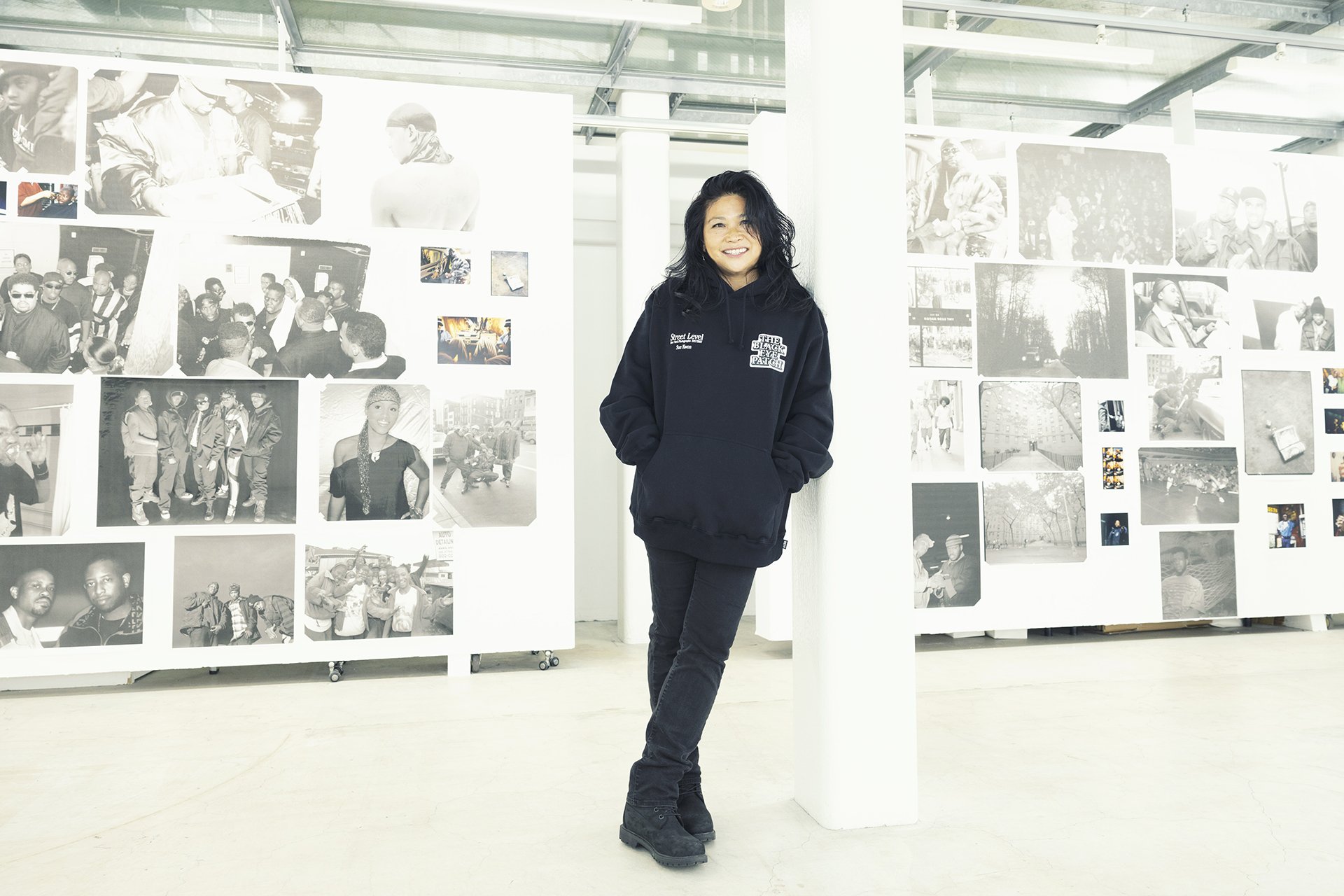
On The Level: Hip Hop, NYC & Photography with Sue Kwon
Text & Photo: Atsuko Tanaka / Edit: B SABURO
Photographer Sue Kwon has captured many significant moments of the NY street scenes and hip hop icons since the late 80's. She released her first photo book "Street Level" (publisher Testify Books) in 2009, and the second book "RAP IS RISEN" (publisher Testify Books) in November last year. We caught up with her during the photo exhibition (sponsored by Black Eye Patch) in commemoration of her book which was held at The Plug Gallery in Tokyo last month and asked about her life, her memorable photo shoots, the process of making her new book, and also her thoughts about the hip hop scene and New York city.
-First, I wanna know about your childhood. What kind of environment did you grow up in?
I grew up in New Haven, Connecticut which is famous for Yale University, but it’s a small town. My parents are hard working immigrants, they're always very supportive and loving so I was able to pretty much be free. I didn't grow up around many Asians, I used to skip school sometimes and took a train to come to the city with my best friend.
-How did you get into hip hop?
When I was in high school, I discovered punk music and after that, it was natural path to hip hop, it wasn’t mainstream at the time, it's very underground kind of thing. After high School, I went to NYU and being around certain people and started hearing like Run DMC and Grand Master Flash, and some of the clubs I was going to like, Roxy and Madame Rosa, the DJs played the good stuff. Once you get a little taste of it you always look for it. Also I heard it in the street like when cars drove by, it was like a moving radio station. As soon as I heard the song, I went to the record store like “Vinyl Mania” and bought records if I could.
-What was like New York city back then?
To me the city was where you could be whatever you wanted to be. It didn't matter if you dress punk rock or anything, most people don’t stare at you. New York represented just artistic freedom.
-But the city was very different from your town, right? Didn’t you feel scared?
When you’re young, one thing you really want is energy and freedom. Of course it was quite dangerous, but it wasn’t enough to keep me away. I definitely was aware like I can’t just talk to anyone or don’t trust everybody, just being street smart. I would walk the streets with my head high. I was just so happy to be there.
-When did you start taking pictures?
Probably around 12, just playing around with my dad’s camera. I remember he always used to take lots of family photos and I see him doing it and made me realized the greatness of photography which can always capture each moments so from that I got a little obsessive and always wanted to preserve every moment of my life.
-Did you wanna be a photographer since you were young?
No, I was doing it just for fun then. When I went to NYU, I majored in French literature and photography because my parents didn’t know about being a photographer and making a living so I double majored. Then when I was in sophomore year, I went to Paris and saw Sebastião Salgado‘s exhibit and that blew my mind. The picture of the victims in Sahel desert and these people are enduring real hardships, but the way he captured is was so poetic and poignant so that made me think I really wanna do photography. His imagery showed me that I should photograph people with compassion and humanity and respect.
-So you learned basic skills at NYU.
They gave me the foundation and I learned the craft. NYU taught me technical skills more so than the emotional skills, but that was also a long time ago so perhaps my memory is not so clear.
-During the time, you started working for The Village Voice?
Yes, I had befriended the great writer, Hilton Als. we used to hang out and he had started working at The Voice and he gave me a variety of assignments. He was the first person to give me a paid job. I used to get to process film and print the photos for the stories at the Voice main office on Broadway by Union Square.
-Who was the first rapper you photographed?
I think it was 3rd Bass. I used to develop the films by myself then and I messed it up during the process so asked them to reshoot. It would be disaster today, but they let me so we met at some restaurant and did the shoot. I remember the moments doing it even though it was so long ago, waiting to meet them and setting up lights. I just shot and then took the films to the lab and waited for them to come back. Thankfully the pictures came out very nice this time.
-After you graduate NYU, what happened?
I had many jobs like waitress and babysitter and also I was assisting a fashion photographer for about a year and that made me hate photography. My goal at that time was to be a war photographer, so the fashion world was way far from that. I love documentary and journalism, I wanted to capture very intense things, something are so far from where I am. Assisting fashion photographers was not what I though it would be and I wasn’t happy.
-Even you were shooting the artists you like?
I wasn’t working a lot then, just doing stuff for myself and there wasn’t many assignments. Stuff I was shooting for free to make my book, and the assistant job was paying so I did, but I just didn't like the world. I remember I used to say to my friends like I hate photography, but I spent four years at school for photography, so I was like what I’m gonna do. Then eventually I start shooting on my own and that brought back the passion.
-That made you realize what you really wanted to do.
Definitely made me shift again, I didn’t leave photography thank goodness. I started shooting my neighborhood in little Italy where I lived, walking around with my camera shooting all the locals and the people, just everybody from grandmas to kids to like Italian guys in The Social Clubs. John Gotti was on the corner but I was too nervous to go up to him, I wish I could ask him to get a photo, that’s one my big regret. But that made me really enjoy photography and I went to venture throughout the city. I love getting the film back and see what captured, that made me really happy.
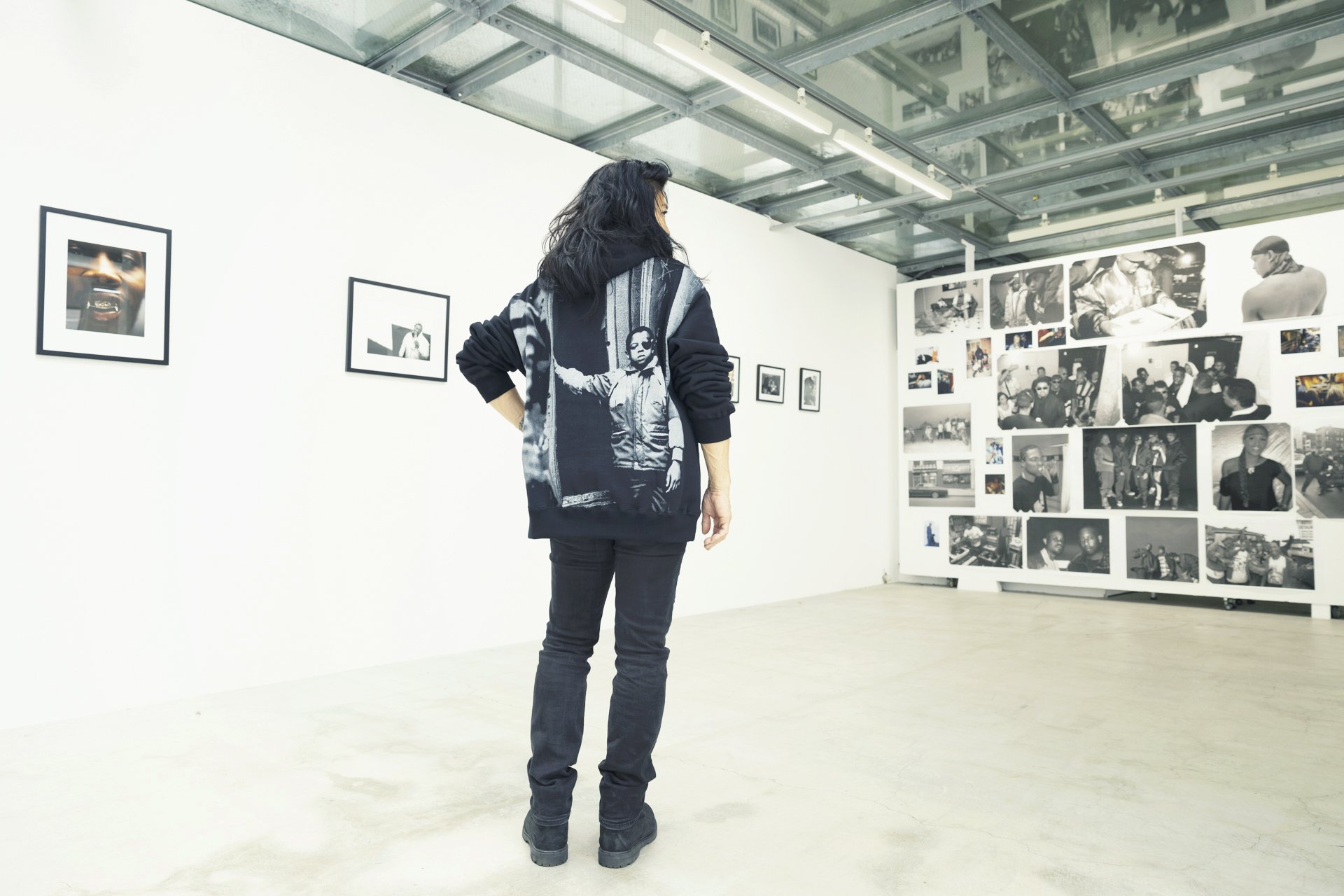
-Good that you got your passion back.
Around the same time I met David “Funken” Klein and he brought me in to do the Lifers Group’s project. I was young and very naïve then, and wasn’t bold enough to ask about money, but he was a great person and it did pay off because that connected me to The Source then I started getting work for them for many years.
-How was working for The Source?
I didn't know what to expect, suddenly in that world so I was just kind of learning. I never had anyone to tell me, but Chi Modu, the photo editor at the time was so nice. I shot many rappers like Slick Rick, Coolio and Wu-Tang Clan and that’s how I got to work with Wu a lot, it just snowballed from there.
-Any good stories about photo shoot with rappers?
When I did the Father’s story and shot rappers with their kids, like Mobb Deep, Big Noyd, Fat Joe and Method Man. That was really sweet and touching. It was my idea and I remember going to the office and told them about the story I wanna do. Because all these rappers always had hard images in front of the camera, but they’re also parents and I was wondering what they were like with their kids. So I bugged the editors for a while and then finally decided to do Father's Day story so I got to do that. It was nice to see the other side of them.
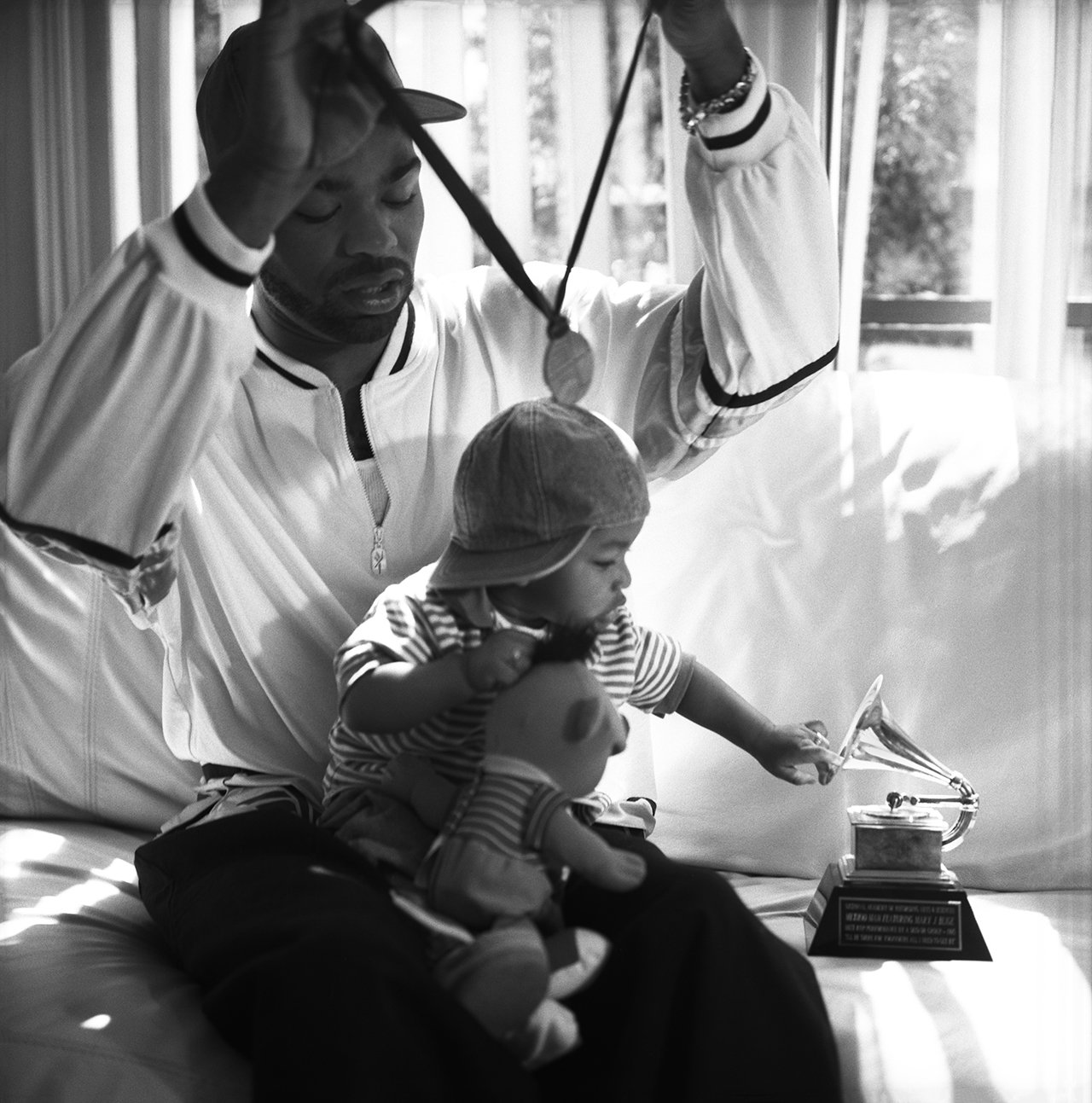
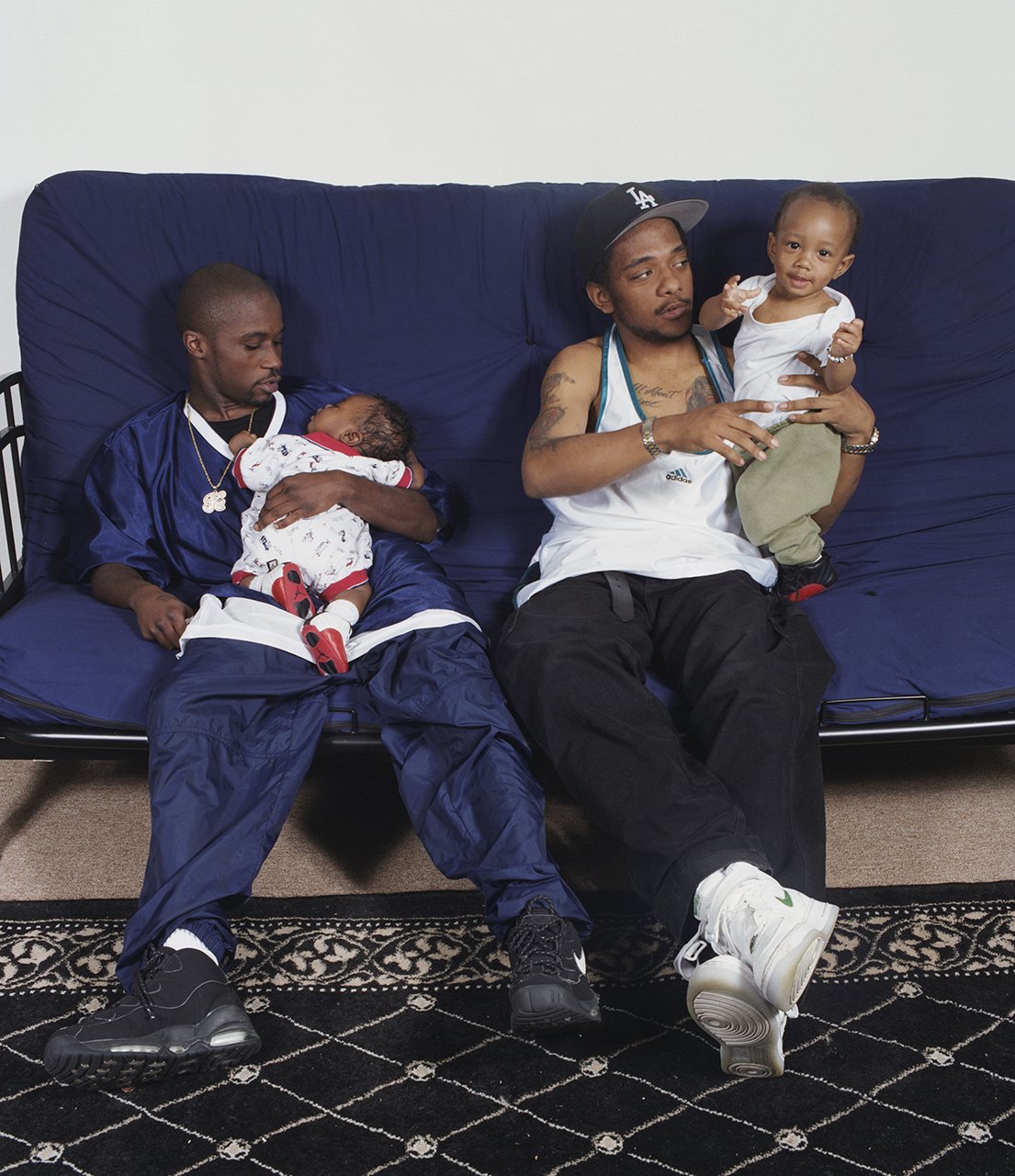

-By the way, have you ever felt that being an Asian woman was disadvantage to shoot rappers?
I never fell that. There was only one time, one of the rappers was hanging with their boys and he said some stupid comments to me, but I just wanted to get the work done, instead of stopping him and put him in his place. I didn't want to change anything, just shoot. Other than that, I’ve never felt that. People are curious about it and that could happen but I think it also how I approach it.
-So tell me about your book “RAP IE RISEN”. How did the project start?
I did the first book “Street Level” with my publisher/editor, Dana Albarella James, and we had been talking about the another book but life goes on like she had kids and I had kids, and then Covid happened so we finally had lots of time to focus on making the book. For the first book, I didn't want it be about all celebrity because I didn't want to be known for that, so I decided to do about neighborhood and if the rappers photo was shot in the neighborhood, that'll be in that chapter. I love it, but it wasn’t commercially successful, meaning people didn’t really get it, they wanna see hip hop. So then for the second book I agreed do it all about hip hop.
-How was the process? What was the hard part and fun part of making the book?
It was a long process, going through all the photos was difficult for me. She would come to my house, we laid everything out and went through things then I scan images, printed them out and just keep editing. We had to edit form about 1000 images, so we thought the easiest way to do it is just put it in chronological order. Doing a book is very difficult. It was like a marathon, but the fun part was scanning and seeing the pictures I hadn’t seen in decades was pretty wild.
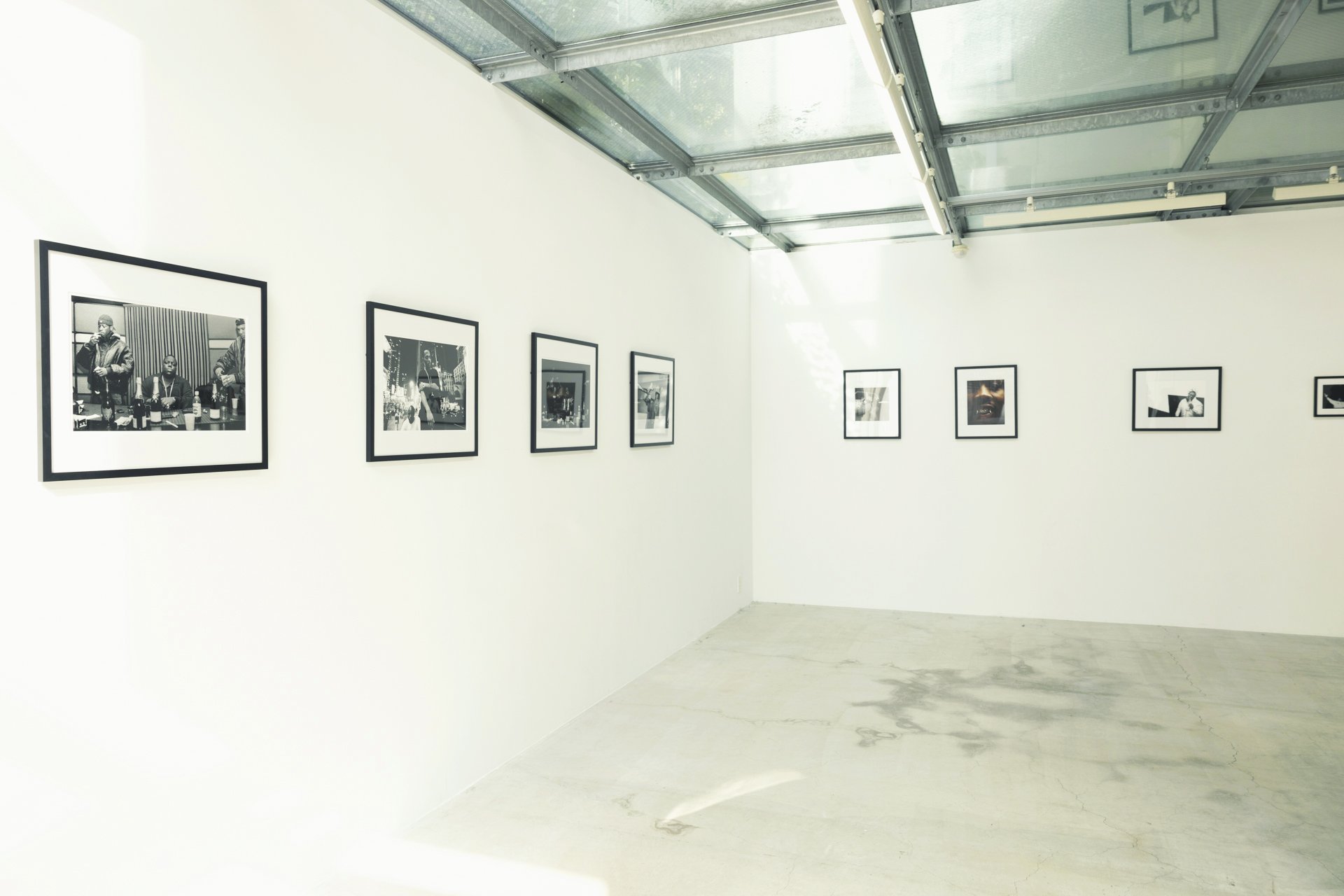


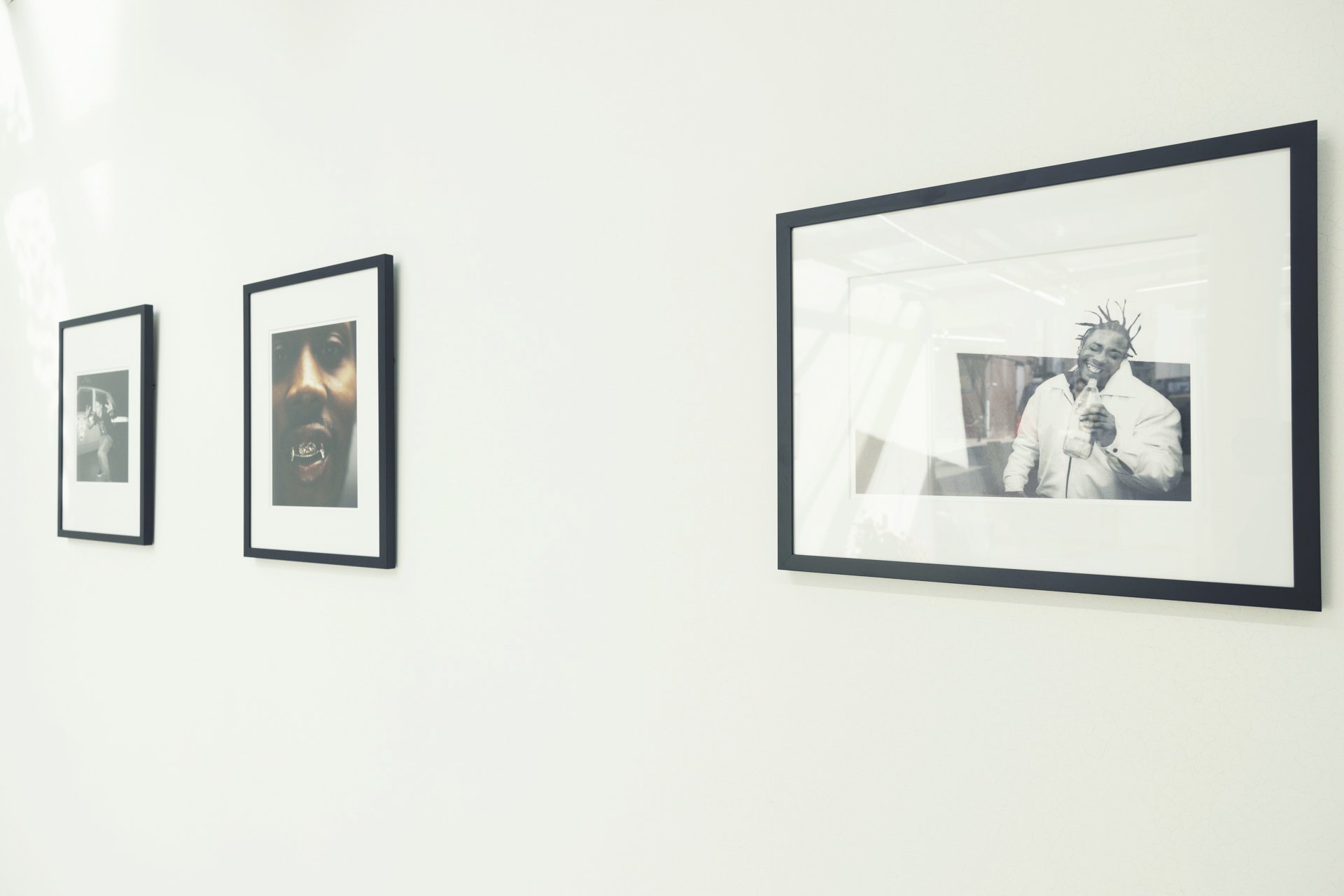
-How long did it take to edit them all?
I think it took about 3 month, but I would not have done it if it were not for Dana.The book was printed in Italy they were delivered to us in November, then I did my book signing.
-Did any rappers from the book came to the reception?
Large Professor DJ’d and Stretch was there. Method man and Posdnuos from De La Soul gave me a quote in the back of the book, so that’s worth everything. He's my favorite Wu-Tang, always very generous.
-Looking back those days, how did those experiences influence you?
What I love is diversity and exposing me to so many different characters, personalities and just handling them, like thinking quickly. They were always fun for me because I love their music and it was like working with somebody you're fan of. But they definitely make me develop more as accepting of change and things like that.

-Which rapper is your favorite?
Method man for sure, he was always fun to work with. As for music, I like first Wu-Tang’s album because it was so different, and also Mobb Deep, Nas, Beastie Boys, they’re all great.
-Do you still listen to hip hop nowadays?
Yes, I listen to new stuff too. For new artists, I like Kendrick lamar, J Balvin, Bad Bunny, Cardi B, Post Malone, so many others I can’t name. They’re different, freak the beats and change it and also I love their voice. I’m always excited to hear what the new artists bring.
-What do you think about the change of the scene in these years?
I don't hang out at clubs at all, I might go to a few venues and parties, but I think it’s great. I feel very lucky that I was in the scene of the 90’s for sure though, it is the only hip hop 90’s era that will ever be, but things evolve and change, even today. I respect that they're doing their own thing, like Bad Bunny, he’s amazing at what he does, I don’t know if everybody loves his new album but it always can’t be just. It might be odd if somebody was still doing the same stuff and try to be like 90’s hip hop today. I think it's fine, I'm open to it.
-What about New York City, it’s changed a lot these days.
Definitely changed, the way I think about it is really mixed. Of course I still love New York City, the freedom and how the city represents but the rent is super expensive that's a big change I think, so I always wonder how it affects artistry. There are like Starbucks everywhere, and lots of classic mom-and-pop restaurants were closed so it's sad to see the things you’ve grown up with are disappearing.
-How about Asian hate? Do you feel anything being out there?
I don’t necessarily feel that and maybe because I act a certain way, I don’t know. In the news I see a lot of stuff is going on, but in general I don’t think people are walking around with fear, just to be cautious. I always try to be mindful of what is around me so if I feel it I stay away from it. Of course there are times when I’m confronted but all I can is handle it the best way I can.
-So, how would you describe your photography style in one word?
I think honest, I hope. Honest is another way of saying of documentary, and also shooting something that you may come across or just exists so hopefully it’s honest.
-Do you have any photographers you respect or admire?
I love Bruce Davidson and Sebastião Salgado. Also Asian photographer, Baldwin Lee. He did amazing body of work in the 80s and then became professor and taught for many years. He was discovered by the publisher in Queens and thankfully did his book this year. I’m glad he was discovered and got his due respect.
-Any new projects you’re working on now?
The main project is gentrification in Brownsville, I’ve been documenting that for about four or five years with a partner who grew up there. Brownsville is one of the last area of Brooklyn that has not been gentrified yet and it has the most projects than any other borough and there are lots of people who have generations that have been there so it’s interesting. We interviewed people and I take pictures of people and the buildings. There is a huge luxury buildings going up so that’s interesting change.
-That’s nice you get to document history.
I also do work with the program “We build a block” which works with local youth and community driven models to reduce violence. I started documenting 5 years ago and feel it’s very important to document how a small grass roots organization builds to identify support and empower youth in crisis.
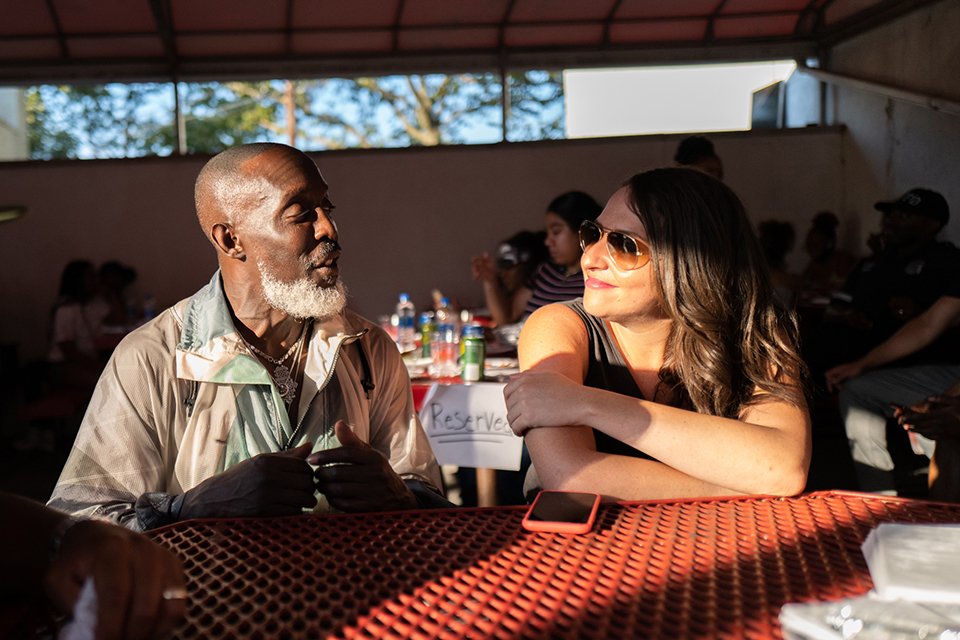


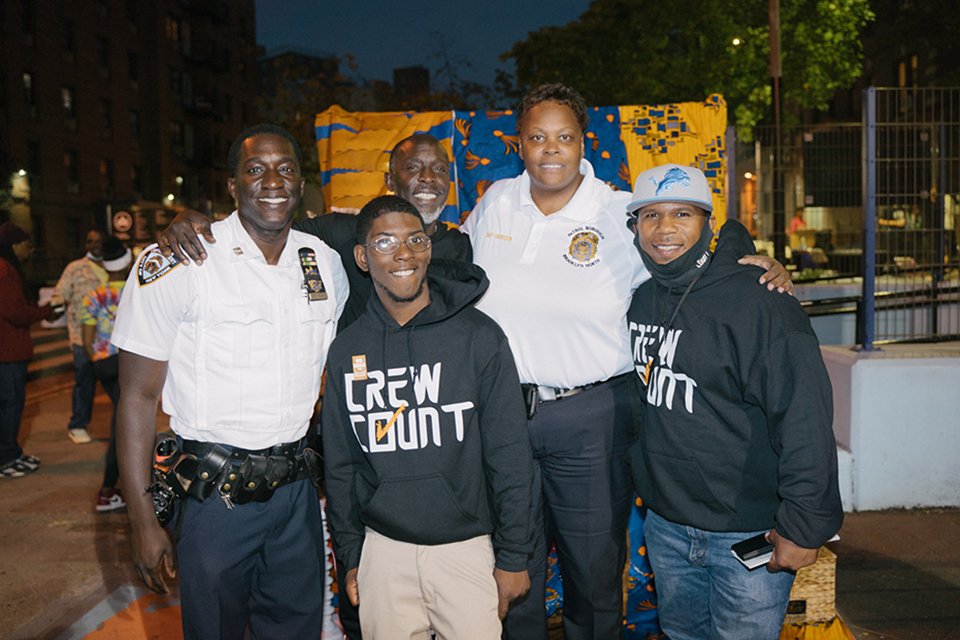
-How do you see yourself in the future? Do you have any goals you wanna accomplish or plans?
I just want to be able to keep shooting and afford to keep shooting. It is very simple.
-Last question, what does hip hop mean to you?
I think hip hop is an energy, something that was new and really exciting like at almost every turn you went, there's a lot of ups and downs in it but it’s kind of life. It’s also a great music that can fit you in a good mood and there was definitely very definitive moment and also historical, but for me it also is a big chunk of our lives. I’m grateful I’ve photographed some of it.
